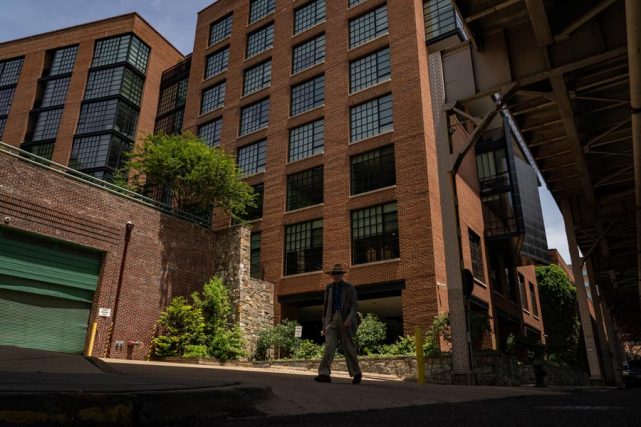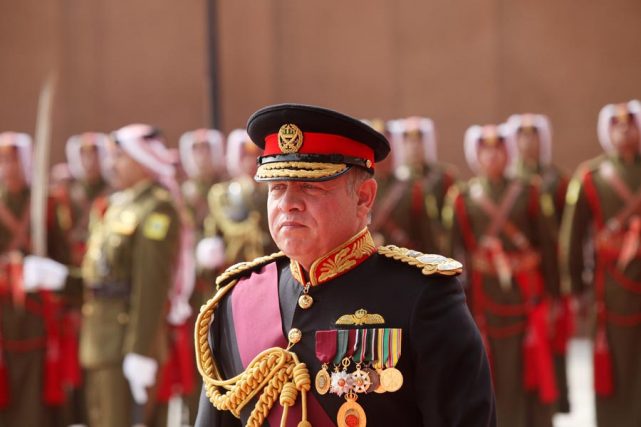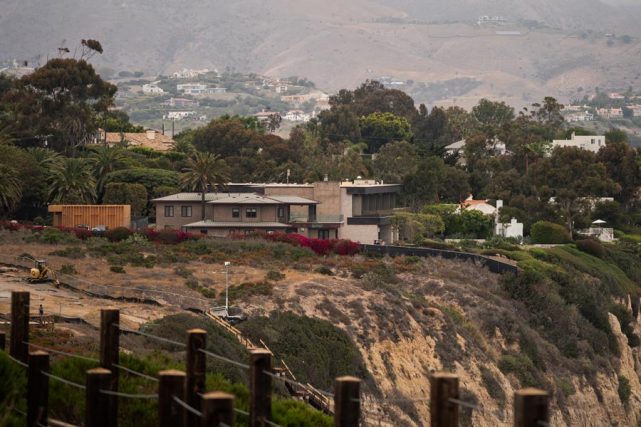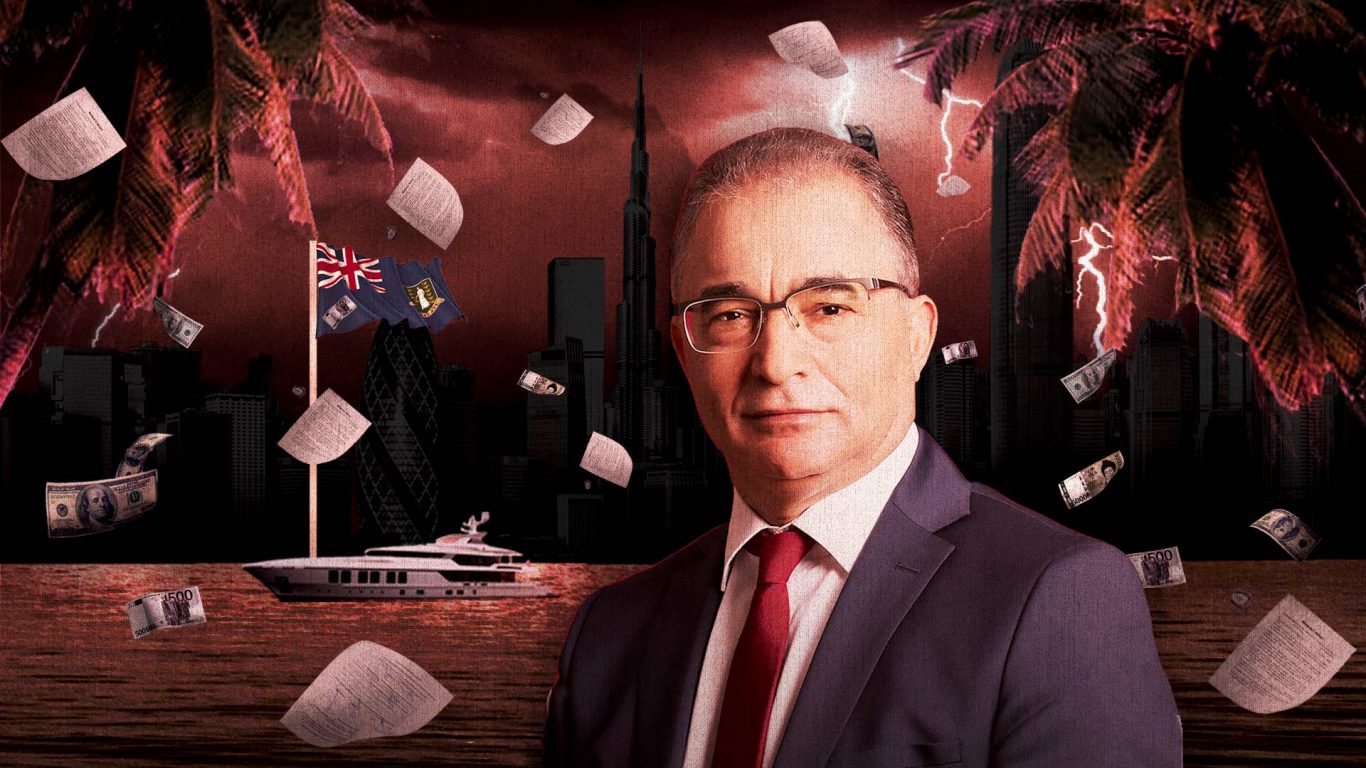These acquisitions began as early as 2003 until 2017, according to leaked documents accessed by the International Consortium of Investigative Journalists (ICIJ) as part of the Pandora Papers. At the same time as their king was spending millions of dollars, the country of Jordan, which is highly dependent on international aid, was going through several waves of major social protests, particularly from 2011 and onwards.
Over the past decade, Jordanians have repeatedly demonstrated against unemployment, declining purchasing power, austerity and corruption. These movements have often been suppressed by the police and security services. At the end of 2019, police officers broke up demonstrations and imprisoned several people critical of the regime and the leaders of the country.
A few months later, the Covid-19 pandemic hit the country hard, particularly due to the confinement and border closures. In June 2020, as a response to the impact of the health crisis on the state's finances, the Jordanian authorities announced a crackdown on hidden wealth, and promised to curb the flow of capital out of the country, which was estimated at 800 million dollars per year.
On July 13, 2020, Jordanian Prime Minister Omar al-Razzaz said he would kick the crackdown on tax evasion into high gear, adding that it had deprived the country's already cash-strapped economy of billions of dollars in revenue in recent years.
Jordanian officials were quoted by Reuters as saying the goal of the campaign was to ensure justice and that no one is above the law. However, the leaked documents obtained by the ICIJ reveal that King Abdullah II, who has ruled the country for more than 20 years, is the main person involved, with 14 luxury residences across the UK and the US.

A pedestrian walks past a building where a property belonging to king Abdullah II is located in Georgetown in Washington, D.C. Image: Salwan Georges/The Washington Post
106 MILLION DOLLARS
The homes include a house in Ascot, one of England’s most expensive towns; multimillion-dollar apartments in central London and three luxury apartments in a complex in Washington, D.C., with panoramic views of the Potomac River.
Also included are three adjoining beachfront homes under reconstruction at Point Dume, a posh enclave near Los Angeles. One, a seven-bedroom mansion on a bluff overlooking the Pacific Ocean, was bought in 2014 through one of the king’s shell companies, Nabisco Holdings, for 33.5 million dollars.
Experts familiar with the region say the timing of the purchases, if made public, would likely have alienated many Jordanians and the tribal leaders who help keep Abdullah in power. Most of the U.S. and U.K. real estate deals (and six of those for more than 5 million dollars) took place since 2011, after Arab Spring protests that toppled governments in Egypt, Libya and Tunisia and posed the first serious threat to the Jordanian monarchy in generations.
In 2012, the year the king bought one of his high-end Washington properties, thousands of his subjects swarmed the streets of cities and towns across Jordan to protest the removal of a fuel subsidy.
The protesters directed their anger at King Abdullah himself, chanting in the streets: “Oh, Abdullah son of Hussien, where did the people’s money go? There are those stealing millions and the rest eating plain bread.”
“Jordan doesn’t have the kind of money that other Middle Eastern monarchies, like Saudi Arabia, have to allow a king to flaunt his wealth”, Dr. Annelle Sheline, an expert on religious and political authority in the Middle East, said in an interview with the ICIJ. Sheline, a research fellow with the Quincy Institute in Washington, D.C., added, “If the Jordanian monarch were to display his wealth more publicly, it wouldn’t only antagonize his people, it would piss off Western donors who have given him money”. Experts say Abdullah, whose subjects mock the way he speaks Arabic with an English accent, has little room for error
With no oil resources and water scarcity, the kingdom depends on foreign aid to support its own people and to house and care for millions of refugees. In 2020 alone, the United States gave Jordan more than 1.5 billion dollars in aid and military funding, and the European Union agreed to provide the kingdom with more than 218 million dollars to soften the blow of the Covid-19 pandemic.

Jordan’s King Abdullah II attends an official function in Amman, Jordan. Image: Jordan Pix/ Getty Images
This year, Jordanian police detained 16 people, including a member of the royal family, over an alleged plot to oust Abdullah. Prince Hamzah, the king’s younger half brother, was temporarily placed under house arrest for his alleged role in the coup attempt. In a furtive video issued after a visit from the country’s intelligence services, Hamzah denied being part of any conspiracy.
“I am not the person responsible for the breakdown in governance, for the corruption and for the incompetence that has been prevalent in our governing structure for the last 15 to 20 years and has been getting worse by the year”, Prince Hamzah said. “A ruling system has decided that its personal interests, that its financial interests, that its corruption is more important than the lives and dignity and futures of the 10 million people that live here.”
Against this backdrop of suspicion and heightened security, the king's British lawyers have stated that Abdullah has crucial legitimate security and privacy reasons for holding property in offshore corporations that have nothing to do with tax evasion or any other improper purpose. The king has never misused public monies or foreign aid, the attorneys wrote, adding Abdullah’s wealth comes from personal sources.
The attorneys said that most of the offshore companies either no longer exist or are not related to the king and that some of the properties identified by the ICIJ as belonging to him did not. Attorneys declined to explain what the king considers inaccurate due to alleged privacy and security concerns for him and his family.
THE KING'S ADVISORS
The documents show that the king's advisors went to great lengths to conceal these property holdings. Accountants and lawyers in Switzerland and the British Virgin Islands set up shell companies in the king's name, and devised schemes to keep his name off of public and even confidential government records.
On two documents, BVI corporate administrators at the firm Alemán, Cordero, Galindo & Lee, better known as Alcogal, checked boxes to declare that no one connected to one of the king’s companies was involved in politics - even though the king has the power to appoint governments, dissolve Parliament and approve legislation.
Writing to the ICIJ on the king’s behalf, attorneys denied anything improper about owning homes through offshore companies. The king is not required to pay taxes under Jordanian law, the attorneys said.
One of the the king’s guides into the offshore world was Victoria Loraine, a British lawyer living on the shores of Lake Geneva, who owned a Swiss wealth-management company, Sansa Suisse SA. In 1995, she helped Abdullah II set up one of his first shell companies, Guinevere Enterprises Ltd in the British Virgin Islands. The records do not indicate the purpose.
Another guide was Loraine’s business partner, Andrew Evans, a British accountant. Evans spent more than two decades with the branch office of accounting giant PwC in the United Arab Emirates, according to his LinkedIn profile, before launching two wealth-management firms in Switzerland, Khalij Fiduciaire SA and FidiGere SA. Loraine and Evans were president and secretary, respectively, of Khalij Fiduciaire SA, according to Swiss company records.
Through his companies, Evans acted as one of the king’s primary wealth managers and keeper of records, according to correspondence between him and Alcogal.
While the leaked documents don’t list the king’s individual properties, their location, details and value can be found by matching shell company names to public property records. Reporters identified 12 of the king’s companies as owners of real estate, including a 6.5 million dollar condominium in Washington’s chic Georgetown neighborhood purchased in 2012 by Zayer Ltd. In 2016, the king’s son, Crown Prince Hussein, graduated with a diploma in international history from Georgetown University, a 10 minute walk from the luxury apartments.
The documents do not reveal the exact purpose or assets of other shell companies owned by the king. Some are described as owning unspecified investments in the U.S. and Europe, but no further details are disclosed.

Properties belonging to King Abdullah II in Malibu, California. Image: Salwan Georges/The Washington Post
Two of the king’s three Malibu mansions are undergoing major changes, according to California planning records. One will be demolished and rebuilt at twice the size. The other, on a lot next to a state beach, will soon have a new swimming pool, a steel pergola and an imposing outdoor barbecue.
On a recent visit by reporters, the houses appeared empty. In one of them, one of the construction workers said he was “building a garage for the owner”.
"You-know-who"
Alcogal’s office took charge of the king’s affairs in Panama and the British Virgin Islands from as early as 2007, according to records.The firm, which is renowned for setting up financial structures, is one of the 14 institutions identified by the Pandora Papers.
This Caribbean archipelago, an overseas territory of the United Kingdom, is known for being a tax haven, i.e. a country where taxation and transparency are low or non-existent. The creation and administration of hundreds of thousands of shell companies for foreigners involves huddles of lawyers, accountants and others. Strict privacy laws and a top-down commitment to the offshore industry draw not only celebrities and politicians but also criminals.
Since the 1990s, Alcogal’s BVI office has helped customers create and operate front companies, according to the ICIJ’s analysis of the law firm’s records. Founded by the son of a Panamanian ambassador to the U.S. and other elite lawyers, Alcogal has become a leading provider of offshore and legal services for multinationals and global elites of all stripes.
For example, it was Alcogal that registered Mohsen Marzouk's company on behalf of SFM Corporate Services, a similar firm based in Dubai. Hiw company, Eagle One Investments Holdings Limited was incorporated on December 16, 2014 in Road Town, British Virgin Islands.
On the same subject
Alcogal employees and Evans, Abdullah’s adviser, understood the importance of discretion. Alcogal employees referred to the king as a “final beneficiary” living in Jordan. Evans preferred “you know who”.
The laws of the BVI and many other jurisdictions, including the U.S., require professional services firms like Alcogal to identify the possibility of money-laundering and other violations by their customers. Politicians and government officials are deemed “politically exposed” and especially susceptible to bribery and related crimes. BVI law provides for fines of up to 75,000 dollars for each failure to identify or disclose such risks.
Yet, in February 2017, Alcogal checked “NO” next to a question on an internal Alcogal risk-assessment document that asked if anyone connected to any of the king’s companies was a politically exposed person, in other words, a politician or related to one. The same document listed the king’s full name, date of birth and his residence as Amman’s sprawling, marble-floored Raghadan Palace.
Evans went to great lengths to ensure the king’s ownership of the front companies remained a secret. In a 2016 draft business agreement with Alcogal, Evans’s FidiGere questioned when, where and to whom the sovereign’s name and offshore activities would be disclosed, according to a review of tracked changes and comments on the document.
As written by Alcogal, the agreement required the offshore firm to share information about the king’s ownership with BVI authorities in the event that foreign countries requested such information as part of criminal investigations. Evans demurred, wanting to know exactly who in the BVI could be told the whole truth: “Please would you define who is covered by the ‘authorities’”, he asked.
Evans modified the agreement to require that Alcogal further shield his “unusually sensitive clients”. According to his modification, Alcogal must store information received about such clients in hard-copy form only, making it less vulnerable to data leaks or human error, and provide access “only on a need-to-know basis”. The leaked documents do not say whether Alcogal accepted the modifications
“Currently we only have one client who fits this category” of unusually sensitive clients, Evans wrote in the 2016 draft document. While he did not name the king or his companies directly, other documents sent around the same time mention Abdullah.
Evans was particularly worried about what could happen to the king’s passport. Evans agreed to provide Alcogal with an electronic copy but asked the firm to restrict access and secure it with a password. Alcogal complied.
With document-handling issues resolved, Alcogal and Evans confronted a thorny question: should they declare to the authorities in the British Virgin Islands that the owner of the companies is the king of Jordan?
The BVI stepped up disclosure requirements in the wake of bombshell exposés of offshore secrecy, including the ICIJ’s 2016 Panama Papers investigation.
Under new laws, firms that help clients create BVI companies must provide authorities with the names of the actual owners - known as “ultimate beneficial owners”. The information is recorded on a confidential BVI government registry. Under BVI law, Alcogal must record such information even for companies that are later transferred to other tax havens like Panama, as were a number of the king’s.
According to the leaked documents, Evans, in emails, asked Alcogal to list on the confidential register one of Evans’ firms (Khalij Fiduciaire or FidiGere) instead of the king.
Alcogal’s compliance officer in the BVI found that recording one of Evans’ companies as the beneficial owner of the king’s shell businesses was possible, according to an email from 2017. But the compliance officer also declared that doing so flouted at least the spirit of the new law, which sought to clean up the island’s reputation
The law also required Alcogal to provide ownership information “without delay”, the compliance officer wrote, and listing Khalij or FidiGere “does not facilitate the ‘without delay’ part” of the law.
Hakim Creque, an attorney at BVI law firm, Martin Kenney & Co., told the ICIJ that a sovereign acting in a personal capacity “should be reported as the beneficial owner”.
However, Alcogal’s files do not record the final decision. In a response to the ICIJ, Alcogal declined to comment on individual cases, but said it accurately recorded BVI company owners in line with applicable law. The firm said that it conducts enhanced background checks on all politically-connected individuals. Due diligence laws have changed over time in countries where Alcogal operates, it said.
Evans told the ICIJ media partner in Switzerland, online and print publisher Tamedia, and the Canadian Broadcasting Corporation that he is retired and no longer works for the king. He did not answer questions. The king’s attorneys told the ICIJ that professionals manage the king’s companies to ensure compliance with relevant legal and financial obligations.
In 2018, after the email exchange, Abdullah was still grappling with the anti-tax protests that had gripped the country, where the median yearly salary is 7,620 dollars. The king reassured the public that he understood their economic pain. “State institutions must adopt a method of action based on transparency and accountability”, he said.
In response to publications about the king's properties, the Royal Jordanian Court released a statement on October 4, denouncing "inaccuracies" and distorted and exaggerated facts. "These properties are not publicised out of security and privacy concerns, and not out of secrecy or an attempt to hide them", the court adds.





